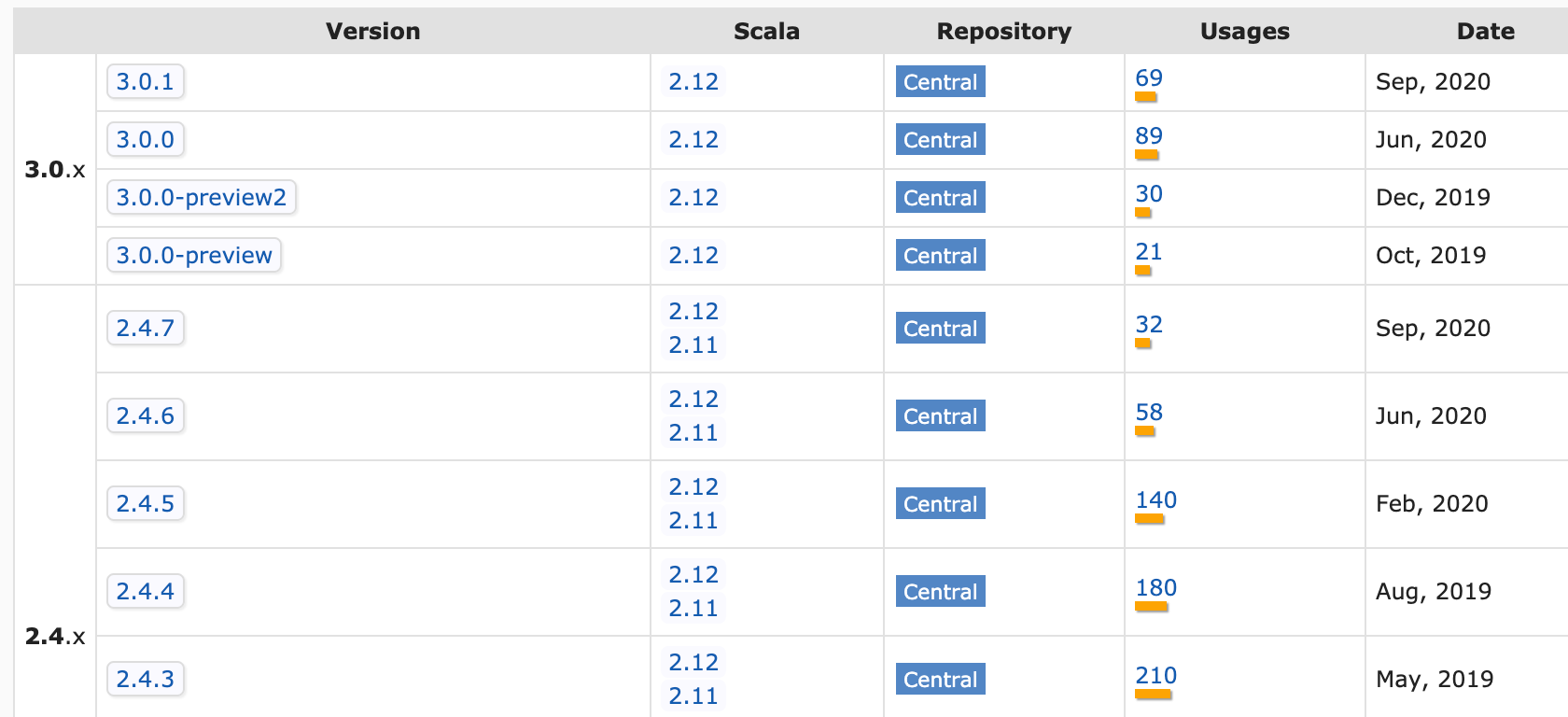I have the following class:
import scala.util.{Success, Failure, Try}
class MyClass {
def openFile(fileName: String): Try[String] = {
Failure( new Exception("some message"))
}
def main(args: Array[String]): Unit = {
openFile(args.head)
}
}
Which has the following unit test:
class MyClassTest extends org.scalatest.FunSuite {
test("pass inexistent file name") {
val myClass = new MyClass()
assert(myClass.openFile("./noFile").failed.get.getMessage == "Invalid file name")
}
}
When I run sbt test I get the following error:
java.lang.NoSuchMethodError: scala.Predef$.refArrayOps([Ljava/lang/Object;)Lscala/collection/mutable/ArrayOps;
at org.scalatest.tools.FriendlyParamsTranslator$.translateArguments(FriendlyParamsTranslator.scala:174)
at org.scalatest.tools.Framework.runner(Framework.scala:918)
at sbt.Defaults$$anonfun$createTestRunners$1.apply(Defaults.scala:533)
at sbt.Defaults$$anonfun$createTestRunners$1.apply(Defaults.scala:527)
at scala.collection.TraversableLike$$anonfun$map$1.apply(TraversableLike.scala:244)
at scala.collection.TraversableLike$$anonfun$map$1.apply(TraversableLike.scala:244)
at scala.collection.immutable.Map$Map1.foreach(Map.scala:109)
at scala.collection.TraversableLike$class.map(TraversableLike.scala:244)
at scala.collection.AbstractTraversable.map(Traversable.scala:105)
at sbt.Defaults$.createTestRunners(Defaults.scala:527)
at sbt.Defaults$.allTestGroupsTask(Defaults.scala:543)
at sbt.Defaults$$anonfun$testTasks$4.apply(Defaults.scala:410)
at sbt.Defaults$$anonfun$testTasks$4.apply(Defaults.scala:410)
at scala.Function8$$anonfun$tupled$1.apply(Function8.scala:35)
at scala.Function8$$anonfun$tupled$1.apply(Function8.scala:34)
at scala.Function1$$anonfun$compose$1.apply(Function1.scala:47)
at sbt.$tilde$greater$$anonfun$$u2219$1.apply(TypeFunctions.scala:40)
at sbt.std.Transform$$anon$4.work(System.scala:63)
at sbt.Execute$$anonfun$submit$1$$anonfun$apply$1.apply(Execute.scala:226)
at sbt.Execute$$anonfun$submit$1$$anonfun$apply$1.apply(Execute.scala:226)
at sbt.ErrorHandling$.wideConvert(ErrorHandling.scala:17)
at sbt.Execute.work(Execute.scala:235)
at sbt.Execute$$anonfun$submit$1.apply(Execute.scala:226)
at sbt.Execute$$anonfun$submit$1.apply(Execute.scala:226)
at sbt.ConcurrentRestrictions$$anon$4$$anonfun$1.apply(ConcurrentRestrictions.scala:159)
at sbt.CompletionService$$anon$2.call(CompletionService.scala:28)
at java.util.concurrent.FutureTask.run(FutureTask.java:266)
at java.util.concurrent.Executors$RunnableAdapter.call(Executors.java:511)
at java.util.concurrent.FutureTask.run(FutureTask.java:266)
at java.util.concurrent.ThreadPoolExecutor.runWorker(ThreadPoolExecutor.java:1142)
at java.util.concurrent.ThreadPoolExecutor$Worker.run(ThreadPoolExecutor.java:617)
at java.lang.Thread.run(Thread.java:745)
[error] (test:executeTests) java.lang.NoSuchMethodError: scala.Predef$.refArrayOps([Ljava/lang/Object;)Lscala/collection/mutable/ArrayOps;
Build definitions:
version := "1.0"
scalaVersion := "2.12.0"
// https://mvnrepository.com/artifact/org.scalatest/scalatest_2.11
libraryDependencies += "org.scalatest" % "scalatest_2.11" % "3.0.0"
I can't figure out what causes this. My class and unit test seem simple enough. Any ideas?




%%operator, as indicated in the accepted question. See my answer to learn more about the SBT%%operator and cross compilation, topics all Scala programmers must understand to avoid headaches. – Phonotypy